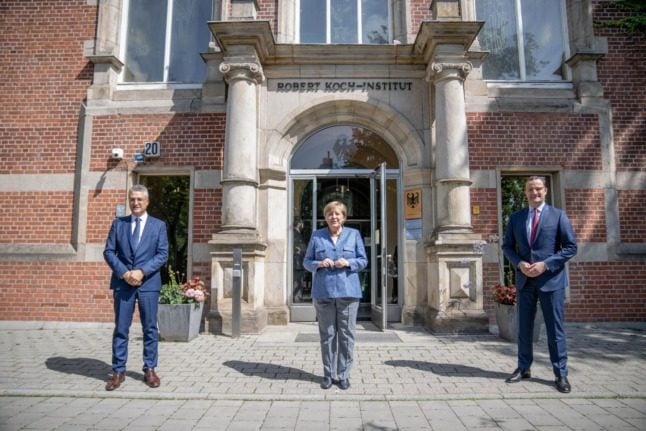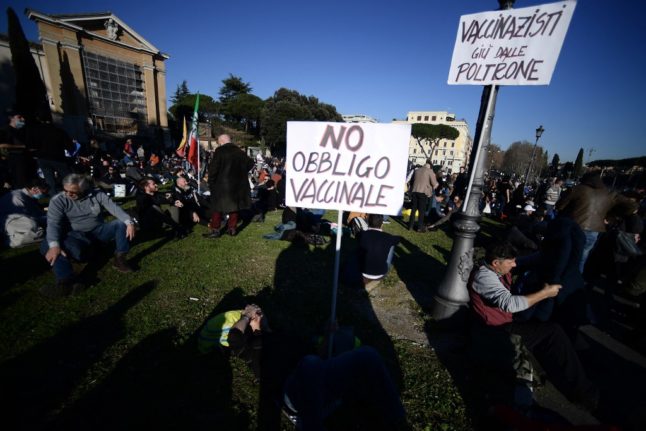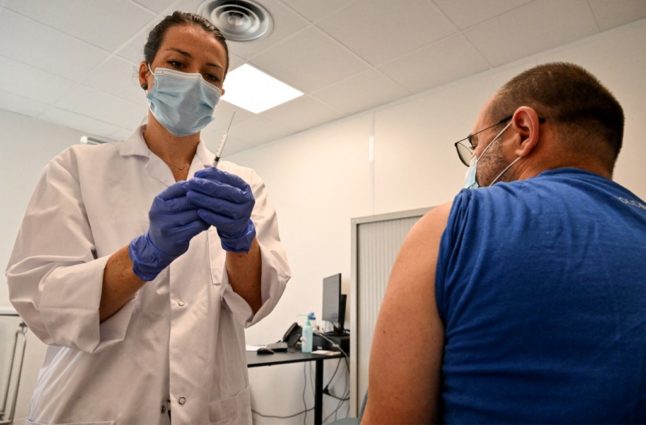“We do not intend to go down this road,” Merkel said in Berlin after visiting the Robert Koch Institute (RKI) public health agency, adding that this could affect people’s trust.
“We are at the beginning of the phase in which we are still promoting (vaccination), where we have more vaccines than we have people who want to be vaccinated,” she added.
However, Merkel said vaccinating was the key to getting through the pandemic.
“The central question is how many people will get vaccinated,” the Chancellor added. To cope with concerning variants of the virus – like the Delta strain – 85 percent of 12-to 59-year-olds would have to be vaccinated, as well as 90 percent of those over 60, Merkel said.
“The more people who are vaccinated, the freer we will be again,” Merkel stressed. “Vaccination also allows us to cope with higher incidences.”
So far, more than 58 percent of people in Germany have received one dose, and about 43 percent are fully vaccinated.
On Tuesday, Germany’s nationwide 7-day incidence rate increased slightly to 6.5 new infections per 100,000 residents.
Health experts are concerned over the more transmissible Delta variant which is now the dominant strain of Covid-19 in Germany.
Earlier in the day, chairwoman of the German Ethics Council, Alena Buyx, said that she doesn’t believe Germany needs to bring in Covid jabs for certain professional groups.
READ ALSO: Should Germany bring in compulsory Covid vaccines for frontline workers?
French President Emmanuel Macron had on Monday announced mandatory vaccinations for healthcare staff, retirement home workers and others working with vulnerable people from September, in line with similar moves in Greece, Italy and Britain.
“I think we can gain trust by advertising vaccination and also by letting as many people as possible in the population (…) become ambassadors for the vaccine from their own experience,” Merkel said.
Pandemic is ‘not over’
The Chancellor said that the pandemic shows there is mutual vulnerability and that everyone depends on each other.
“Vaccination not only protects you, but also always protects someone close to you, someone you love,” she said. “It also prevents the health system from becoming overburdened.”
Merkel hopes there will not be new lockdown measures if a fourth wave comes. “We are of course doing everything we can to prevent that,” she said, reminding people to observe hygiene rules like distance and ventilation. Testing also remains important, she added.
The development is generally positive, “but the pandemic is not over”, Merkel warned.
READ ALSO: German Ethics Council advisor wants mandatory Covid jabs for teachers
“We have it in our own hands to make the decisive difference,” said Health Minister Jens Spahn who was also at the press conference, along with head of the RKI Lothar Wieler.
The vaccination rate is still high, but it is slowing down, he said. “The more people who get vaccinated, the better we will get through autumn and winter.” Vaccination, he said, will determine how busy nurses and doctors would be again.
“Vaccinate also to protect our children and young people,” Spahn urged. “We have to take this age group into consideration.” Children under the age of 12 currently have no approved vaccines for them, he said.
“The vaccine is there, appointments are easy to get. Take the opportunity and get vaccinated,” Spahn appealed to the population.
Spahn said vaccinations should be taking place throughout communities – like at sports clubs and among religious communities.
Spahn and Merkel said they would not rule out charging unvaccinated people for Covid tests in future. But they are not at this stage yet.
Currently rapid Covid tests are free across Germany, and unvaccinated people can use them to unlock activities in some regions such as dining indoors or going to the gym. Vaccinated people or those who’ve recovered from Covid can show proof of that instead of taking a test.




 Please whitelist us to continue reading.
Please whitelist us to continue reading.
Vaccines are to prevent desease on people who are at high risk and no other option for treatment is available. Nobody has the legal right to force you to undergo any medical treatment… If you are concerned about covid and the vaccines are safe for you, you get the jab, if you have low risk of covid or have intolerance to vaccines or do not feel they are safe, you have the right to refuse the jab. And the government’s job is to support every citizen…